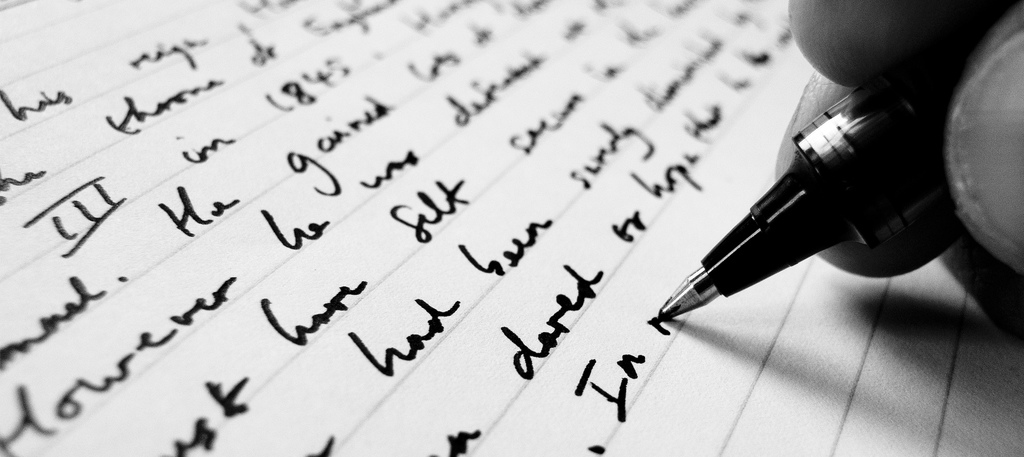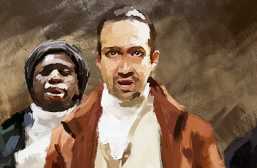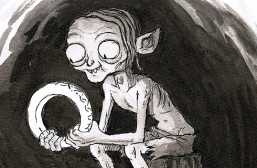The “Write” Way
Writing is a verb, it is the action of placing words on a page in a way that is coherent, but writing can be so much more impactful than that definition would have one believe. Writing is the ability to make words dance and paint vivid and vibrant pictures in the mind of the reader. The ability to write is one requiring practice, patience, imagination, perseverance and so much more. It is a fight to get the words on the page in a way that both you and your potential reader can understand. The writing process can be daunting if your understanding of the medium is lacking in any way, and yet it is so important to continue.

Getting Started
To begin writing, some semblance of a topic is required – be it a topic picked based on audience, personal preference, or necessity. Writing for a class, for example, an author may be given a topic or a set of potential topics or themes to choose from within. When writing if the author is writing non-fiction, writing something the author feels is disingenuous or goes against their beliefs and values can often be an excellent choice. When an author writes for about a topic they are passionate about, the passion truly can be felt in the writing, however writing with passion can allow the possibility for logical fallacies to infiltrate the piece. This is not a guarantee; however, it is a possibility.
When writing fiction, this need to be factually correct changes. Logical fallacies are less of a problem when looking at fiction, because fiction as a medium is often disingenuous to reality, that is arguably the point of fiction. When writing fiction, author’s preferences and passions are going to be the most prominent and important topics to consider. If a fiction author does not like science fiction and decide to write an epic about space travel and astronauts the writing will likely seem as tired and forced as the author feels writing it. This is not to say writing around disinterest is not possible, however writing to passions is going to shine through.
Once a topic is decided a plot is required before beginning the story. Plot being the device the narrative follows to tell a story, or in the case of nonfiction essay style writing the plot would be the developing a form of topic sentence and planning the following paragraphs of the essay to follow.
Essay style plots are often self-explanatory, following the progression of the topic sentence or the story being told. Some different styles of essay writing include descriptive essay, where a story is told taking time to touch every detail and create imagery, expository essay where a topic is reported or explained, or persuasive where you conduct and argument and argue the correctness of your stance, among many other forms. These plots often follow a simple pattern based on the needs of the piece. Creative style plots however have much further variance.
Creative writing plot generators are abundant on the internet, but beyond that because of the nature of the style – the fact that it does not need to be factual – allows the creative writer a sense of freedom the essay writer does not have, alternative facts aren’t welcome in essay style writing. The creation of a plot may be sparked from a show or movie, a dream as is the case with Stephanie Meyer’s Twilight, or perhaps other forms of random daily inspiration. When a plot has been pinned, and a topic picked the writer may start writing.
For both styles doing prewriting or drafting may be a helpful way to peg down the plot, bubble charts with branched topics off the main idea are often preferred with essay style. With creative a highly used device would be drawing up a plot arc, drawing points along a physical manifestation of the way a plot builds.
The Actual Writing Bit
When it comes to writing no two authors are the same; however, after a topic is found writing must start at some point, no matter how much drafting is involved. Beginning a piece can be an intimidating task, so at times authors opt not to begin the piece. Some choose instead of starting a piece on page one starting somewhere in the middle can help the writing process along. The best advice for a writer of any age, gender, proficiency, is to write continuously, be this on a daily or nightly schedule, or just making sure to write periodically through the day. This action of constant work builds practice and skill, enabling the writer to become more skilled and proficient in their work, along with increasing their stamina and ability to write more in a shorter amount of time.
Another practice that often helps in completing a piece would be completely ignoring spelling, grammar and syntax errors. This suggestion, though seemingly blasphemous, is very useful to many writers as their focus and flow are not interrupted because and was spelled ‘amd’.
Editing
The other reason why editing while writing is unnecessary, is because it is the next step in the writing process. When it comes to editing practice makes perfect, however it can be beneficial to leave the piece along for a few days. When the author leaves the piece be and moves on with their life, the connection to what was written fades enough to truly see the flaws within the piece. Coming through a separate date and editing allows a fresh mind to look at the piece, maybe that paragraph should really be in a different section, or this dialogue doesn’t fit the character, these are more likely to be noticed after some space is taken from the work. With clarity of mind and a fresh sense of understanding of the piece returning after a few days often reveals a better piece hiding under some tactful editing. If someone aside from the author is the editor, the best practice for growth of all parties is having all changes, suggestions, and comments visible and optional to the author. Having other parties read the piece can help to add more clarity or understanding in places that perhaps made sense to the writer but wouldn’t make sense to an audience.
Final Piece
Once a final piece is created if can be printed, turned in, or kept for personal enjoyment. The only necessary piece is time, if an author puts time into their piece, one day it will come out. Prewriting, taking time and care, and making sure to take space to make a better creation can be helpful in a writer’s journey, though not required. Every writer’s process is different, however these pieces can often be found to help the writer along their way to accomplish their goals, in the end achieving those goals is the only thing that truly matters.

What do you think? Leave a comment.











Writing gets easier with experience.
Thank you for. We always have some mistakes in writing so never hastened just relax and write well then you can editing.
I know someone who writes as he speaks, and the result is horrible.
Grammatical rules are ignored: sentences have no ending, commas and apostrophes don’t count. He ends many sentences with prepositions and split infinities are the rule, not the exception.
That sounds like it would be difficult to read and follow, hopefully your friend improves!
While ‘writing how you speak’ may work for the Blogosphere, it doesn’t work so well for article writing or web content. In these cases, you will find that your clients give you guidelines about the tone they want (if you’ve designed your briefing procedure properly, that is), what audience they want to reach and how they want to portray their business and their message. As a writer, you have to take these instructions into account when creating content, otherwise you will find your chatty, friendly, ‘having a goss’ with a mate’ style roundly rejected.
A more relaxed, informal style is what is expected in Bloggerverse, but in the commercial world there is a clear definition between this particular style and more business-orientated copywriting.
However, in blogs this more informal style does work, but my advice would be not to take it to extremes. Don’t shy away from using ‘big’ words – credit your audience with a level of intelligence. People’s use of language is much more complex than we often assume, so don’t be afraid to use ‘der big words’ from time to time. It won’t necessarily make you sound like a pompous ass – it can give you an air of authority that promotes a level of trust in your expertise amongst your readers. The most important questions to ask are ‘does it convey the message effectively’ and ‘are my readers engaged’?
And please, for the love of GOD, spellcheck before posting! Nothing will scream ‘amateur’ faster than a blog or any other piece of writing that is peppered with spelling mistakes, grammatical errors or even colloquialisms. (On that point, also remember that not everyone speaks the same version of English either…)
I was teaching a language lesson in a grade 4 class about imagery. As I walked around and read the students works I kept seeing that students got so bogged down on the rules. As a result the students works came out like sequential steps: “it was a beautiful summers day. I saw…. Then I heard…. Then I felt.” I realized that eventually after failed attempts of getting them to write more freely by explaining the rules of imagery; what worked better was to remove the book from them, ask them to imagine the scene and then simply tell me about it. What I found was what they spoke was better than what they wrote. As a result I found myself telling these students to ‘write what they spoke.’ (And then of course, go back and edit). Had I committed a blasphemy? Well, either way, it worked. I guess to each, their own.
Great article!
Very insightful article on the craft of writing!
Very well written article!
Be yourself and don’t let following or trying to remember rules get in your way of writing.
That was a problem of mine early on, trying to craft rather than just letting it flow.
I had an advice from one of my J-professors. I always brainstorm on a blank piece of paper before beginning my computer work. I start with writing down the main idea and all the details as quickly as possible. It gives me a “road map” to begin.
That’s a great brainstorming technique Macias! I once heard one that’s similar involving notecards. The idea was to jot each idea on a 3×5 note card, then you could arrange them in the order you wanted to cover the ideas in your article.
Thank you for the read. I’m currently working on a book and the problem i’m facing is i have the idea of the book in my head from the first chapter to last, i know exactly what i want to write and the message i’m trying to send but i keep having trouble with the tenses and english is my second language so if you read the 20 pages i’ve written you will find all kinds of tenses there and that tends to confuse the readers and i just want the main character of the book which is a woman to tell and express how she feels at moment and sometimes tell a story about her past life, i don’t know if you get what i’m trying to say here but if you do can you please give me a tip on how to solve this problem, i showed it to a friend she saw the problem and her response discouraged me to continue working on the book, she said it’s stupid.
Mann, first and foremost don’t give up. I understand how tenses can be challenging. You can express that way with first or third person, first being in thoughts and third being in a narration. I would suggest practice first and foremost but second having native English speaking peers review the work and tell you where things are mismatched or don’t make sense. I hope this helps and good luck with your novel!
All you have to do is practice.
I first envisioned my book about 8 years ago. I wrote the first page back then then stopped. I started again because I am taking some time off from my professional career. My book is going to be about Spiritual Environmentalism and how we humans have messed up the earth because we are messed up inside and what we can do about it. What do people think of this idea? I want it to be what people would be interested in, not just myself.
That sounds like a really interesting story! I think as fiction writing can provoke thought in ways textbooks can’t, if anything a story like this could be great for our world!
You sound a lot like me and what I have had going on lately. I’ve had a story I’ve written small little idea notes about for years but never really got into writing the actual full on story. It’s been incredibly discouraging because I am writing alone and can’t even find people to help me by reading what I have and giving feedback on whether it is even going to be interesting to others an;d therefore worth writing it out. I want to write it and get it done for myself, but it’s discouraging if no one else seems interested, ya know?
I don’t know much about the subject you are mentioning here, but just that little bit you did say does sound like a very interesting concept. I’ve always found psychology interesting although I’ve never studied it, so this concept of yours sounds like something that would incite quite a bit of deeper thought and self reflection. I’m sure there’s got to be many others who would also find it interesting as well.
Great…the concept is interesting
I can relate. I’ve had a story in me for several years now. There are notes, some chapter outlines, character sketches, etc. but I just haven’t been able to construct a novel out of that yet. However, the story I thought of has never left my mind in all those years even though it constantly changes. This makes me think that I shouldn’t abandon it so easily, no matter the frustration in getting it to fruition. I wish you the best of luck with your book! It intrigues me already.
Writing is my everything. Thanks for sharing this useful article.
This highly insightful article about how a writer’s writing process reminds me a little of my own writing process. What I typically do these days is make a rough outline of the story that I’m writing, and then go from there and fill in the blanks when I write the actual piece. Plus, I do love that picture of the writer working at his desk and a monster creeping up behind him ready to attack! Classic!
I am getting on to 60 in the spring. My life has been what they call interesting but not in the kind sense. Be careful what you wish for right?
I have no living relatives, and all my friends are gone to to look for their own midlife crises. Those still alive.
So, at the end of my life in isolation I want to say what I lived and what I remember, what used to be called a memoir, but of course people only read memoirs of the rich and the dead.
I have this computer, but it does not have Word on it and I will be goddamned if I ever give Microsoft another dime. Do you (or your readers) know of an online place to write? A place I can go every day to add to what I can recall?
By the way, I have memories going back to 8 or 9 months old, people say that is not possible. But there it is.
Any advice is welcomed.
Yes!!! 750words.com is o believe the name of the site, they promote writing at least 750 words a day but you can absolutely go beyond that and old entries are saved! Good luck with your memoir!
Lorm. You’re not alone and you’ve come to the right place. There are many here at The Artifice who, I’m sure, would be interested in your life experiences. History is not made by the self-styled great and glorious, but by us – the ordinary men and women who truly suffer the slings and arrows of outrageous fortunes. You have a story to be told and a desire to do so. Good luck to you, Sir.
Regarding your refusal to bow to the almighty Microsoft (I’m with you all the way), there are other word processing options available, as alexpaulsen has mentioned. You may also like to consider Open Office, a programme I use. It’s free to download and does everything and so much more than Microsoft Office suite. It’s quick and easy to learn.
As to your earliest memories – yes I believe you because I too have an early memory that, when I described it to my mother, seems to be from before I was a year old. Experts don’t know everything and many of the greatest leaps forward have been made by those without letters after their names.
Here’s to you and a positive, bright future. By the way, I’m 57 so not far behind you in age, though I’m still 17 in my head. It’s never too late to be who you were meant to be.
Thank you so very very much Amyus for the thoughtful response.
There’s stuff like Open Office which is like Word but free but if you really want to write you can just use the Notepad application on your pc, is not as pretty I agree but as an author you’re interested on your ideas, not on how pretty the text will look.
I suggest getting your writing done on any medium possible and then looking for some fancy thing to make it look pretty.
I think there are more of us who remember 8 or 9 month old memories than you might think. And what does it matter what “they” say about it.
Check out Google Docs – it’s a free to use online copy of Microsoft’s Office suite that might suit your needs
A nicely written piece, even if some of the advice you give is obvious – and that’s not intended as negative criticism. Sometimes we do need to have a mirror shoved in front of our faces to realise that the only obstacle standing in the way of actually getting those lines written down is the face looking back at us. A writer writes, even if it’s just a few notes or lines scribbled down on the back of an envelope. Many a time I’ve caught a snippet of a conversation or picked up a comment made by someone on a train or a bus then jotted it down for later reference – yes, public transport is a great source of human interaction. I recall being on a coach to London some years ago and overhearing this little gem: two elderly women were chatting in the seat row behind me. One was going to visit her sister in Blackheath (South East London) and the other said “I don’t like Blackheath. I went there once and it was raining”. Absolute nonsense, but perfect for character building. I had to write it down and maybe one day it will come in useful.
I procrastinate on my blog. Sometimes it flows very nice and sometimes it feels so sticky.
Some of my English profs have really messed with my head when it comes to writing.
This is excellent. Thank you.
Well done for attempting this topic, as it is not an easy one since such disparate opinions about the writing process exist. I think it has become quite difficult for writers with the plethora of advice available, in a way this can be less helpful as you begin to fall into the trouble of not even knowing whose advice to follow. I think that the best way to attempt beginning a writing program though, is to find out how your favourite authors began – or what their actual process is – because you already know their style and voice, and may be writing in the same genre, you are more likely to find their processes engaging or meaningful rather than some generic advice online.
Thank you, you give me inspiration.
Thank you so much!!
A great, short, comprehensive guide! When I come back to writing this summer, I’ll return to this article 🙂
Honestly that makes me so happy to hear!
One thing that always helps me getting my writing done is indeed writing completely ignoring spelling, grammar and syntax errors. Is so much better starting with something, even if it isn’t good.
Great article! It might be interesting to follow up on this article with medium or genre specific writing methods to see if there are any deviations from the general rules.
Writing is also a talent and while writing to be yourself is the beauty.
Thank you for sharing this article! I’m trying to get back into creative writing as with school I haven’t been able to keep up with it much and this was very helpful.
I love and miss writing and would definitely keep this article in mind!
Great Insight. I agree writing takes time and commitment and practice. Writing is like visual art. It comes in layers and improves with each touch up. Many artists begin with a sketch or an outline, so too does a writer jot down the basics of their thoughts and then approaches them again and again to refine them and create a visually pleasing final product. Many people forget that editing is an important aspect of writing and a crucial step in the process.
Writing is another way of thinking. Sometimes, it can form deeper thinking that the writer may not be aware of.
Great interpretation of what writing is. Making the words dance and pain a vivid picture is how most view writing. It is painting a picture so that he reader may just place themselves on the land and look out at the horizon which is your story.
great article for beginners but what about advance
Time is not always helpful. You need to study yourself and choose strategies that work for you.
Yes, if only the stages were linear and not recursive. Good article for beginners, but the process becomes more complicated and chaotic for multiple-genre writers. Yes? Poetry comes differently for me than prose, fiction differently than nonfiction, and academic writing challenges the process differently than creative pieces. But you offer some wise words, so thanks!
This article has some good suggestions, especially writing against your passions or values to clarify logical content, something not so easy to do!
For me, writing is a long process – a beautiful one – but still too long. For example, when writing fiction. I love the rush of getting all these ideas swarming through my brain, and I don’t know if I should speak them out and record them, or write them down, or act them out! The excitement is so heavy that I cannot even describe it. I wish I could paint my thoughts into pages, but I’m barely good at drawing stick-mans
Thanks for the tips 🙂
Time, I feel, is one of the main factors for a writer. Not only the deadline one might set, but more along the lines of the extension of the period the writer makes. An example being some one with a terrific imagination but low attention span may take longer. Creative input is well managed but the time it takes and second guessing that comes along takes a toll.
A very good article. I am an accomplished academic author and your tips are useful and I follow most of them myself, especially not worrying too much about editing until the ideas are on paper. But what do think about academic writing? Have you any tips you can share with me and my students?
These are some great tips! Personally, separating myself from my writing is one of the hardest things to do, but one of the most beneficial. It helps a writer see what is clearly described and what needs to be elaborated on.
I also agree that getting an outsider’s perspective is important. I speak from experience because I am currently a story with a fellow amateur writer in which we have created a new world and new races. After writing the first couple chapters, we decided to let someone else read what we had so far. It became clear that even though we understood perfectly well every aspect of our world, it was much more difficult for a reader to make sense of it all. Since I already had all the necessary knowledge in my brain, I couldn’t see how someone else might lack important information needed to understand the rest of the story.
There is no “write” way to write, but these suggestions certainly make things easier!
I enjoyed this read.
I read straight through with out stopping because the subject was of interest and the information was sequenced nicely.
Great job!
Susanne Dorder
Kids Esteem
I just registered and this was the first article I read. Very useful writing tips.
Writing is a maelstrom.
Writing enables us to see the truth.
Great article!
Good article! The 3×3 writing style is extremely important, editing and revising is just as important as writing a story.
Good. I talk about writing, writing well, and revising writing often in my courses and this piece expresses those points. I think I’m going to add it to my course websites in the Fall Semester and then discuss this piece in class. A few other pieces will also be used. Maybe after students read a few of these articles and we have a classroom discussion, it might lead to a more interactive discussion than me just lecturing.
its such a helpful article especially to beginner writers who wants to learn more in writing and blogging.
Keep it up
Solid summary of many points that authors who write about writing make all the time. Simple and concise, but effective.
An inspirational article.
The more you will write, more perfection will come in.
You make a lot of strong points about writing. Good work.
The best article for young writers.
This article is really helpful for first year students in literature in specific, thank you for the various information induced.
This is so helpful and eye-opening. Wow.
It is unfortunate that this piece on writing contains various errors in writing. For example, there should not be a comma after the subject in the following sentence: “The other reason why editing while writing is unnecessary, is because it is the next step in the writing process.” This shows the importance of careful editing (and the sentence just quoted was from the section on editing). In any case, writing is a difficult process.
Thank you for this brief description of the elements of writing. With the technical proficiencies it takes to be a writer, the daily grind, the dedicated time to reading and so on, I cannot help but find writing about writing intoxicating. This is because in my own experience often the need to write comes before subject. It is a pressing urge. A thirst. I do not always write because I am moved by a subject but I always find release in putting pen to paper.
I’ve been writing stories for as long as I can remember, but I’ve yet to finish a single book! I can do essays in my sleep, but that’s not my main focus. I’ve been studying writing at the college level for a few years now, and while I fully understand that you have to write in different ways for different audiences and purposes but I still hold onto the idea that there is no right or wrong way to write. 🙂
I love that you’ve written about writing. I was skeptical at first because there is no correct way to go about writing, but you removed all skepticism by mentioning that no two authors are the same. I love that you wrote this as (I hope) an inspiration for others to sit down and write, even if they’ve never thought about writing for pleasure before.
Write from the heart and all shall fall in place. Create your own little world and watch it give birth to spectacular characters.
To write every day is really good advice. I’d add to this that it’s crucial to constantly read the work of magnificent writers. Not only is exposure to great prose and poetry inspiring, and will spark creative juices, but it also improves the quality of one’s own writing in mysterious ways.
Well written – a creative piece on something as simple as writing.
Great point about writing continuously. I feel we often underestimate how helpful having a writing routine is. I’ve only just begun to develop mine but I already see a difference!
My biggest writing problem is that I tend to edit as I go along. I’ll revise a single sentence four times to get it perfect before moving on to the next. I should certainly take your advice and edit later! It is a hard habit to break, though. Interesting article 🙂
This is such a good guide for when you’re feeling stuck trying to start a piece. Every time I’m stuck I just start writing, even if it’s nonsense, and usually by the end I find at least a few words, maybe even a whole sentence if I’m lucky, that’s worth building off of.